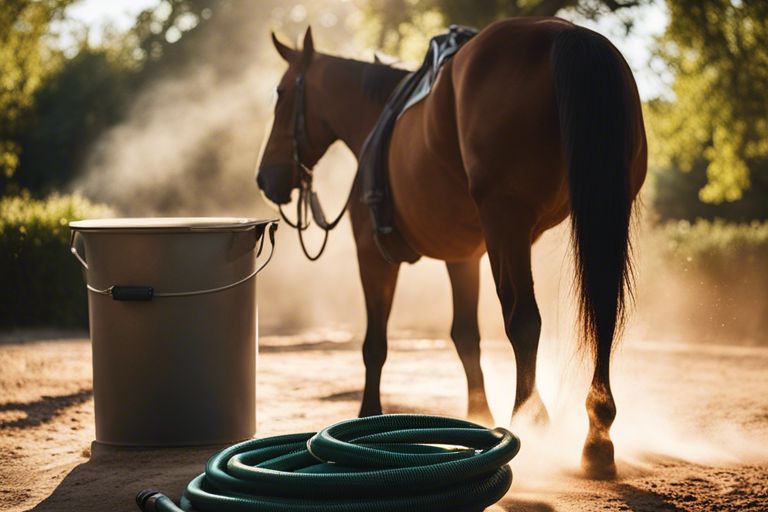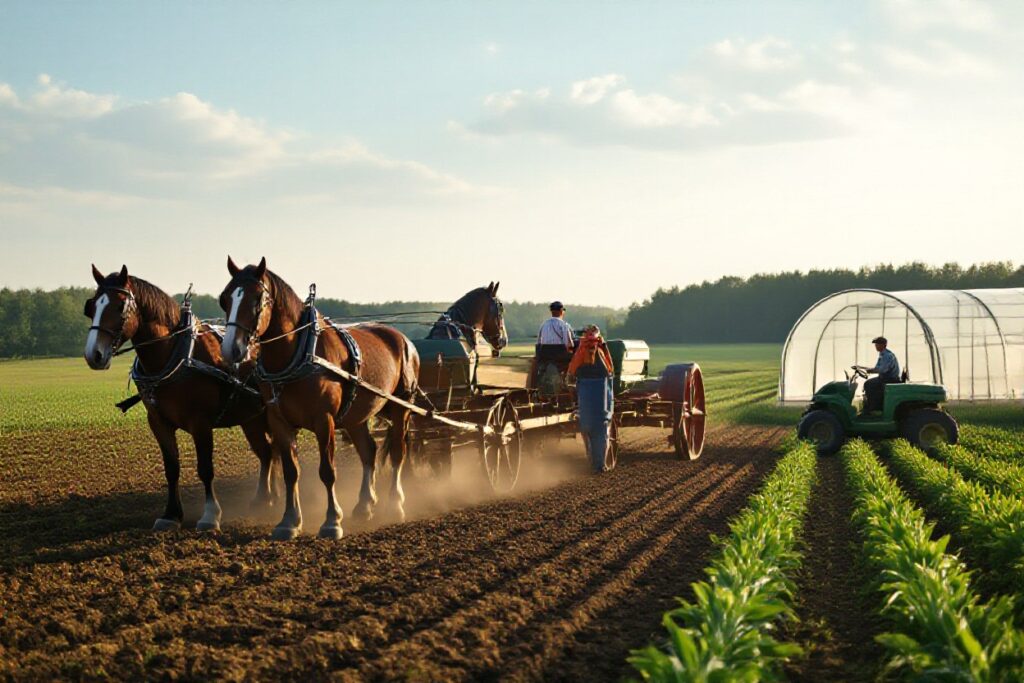Just imagine the scorching heat of summer bearing down on you and your beloved horse. Heatwaves can be extremely dangerous for horses, leading to heat stress and other health issues. In this guide, we will walk you through imperative tips and strategies to keep your equine friend safe and comfortable during a heatwave. By following these recommendations, you can ensure your horse stays healthy and well-cared for even in the hottest of temperatures.
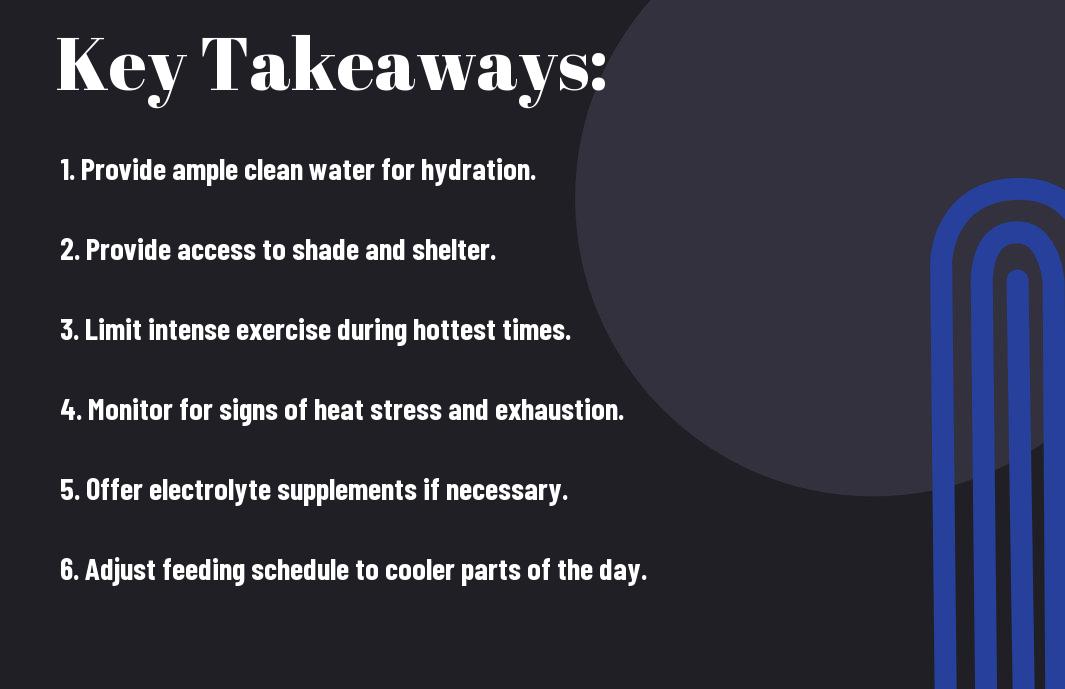
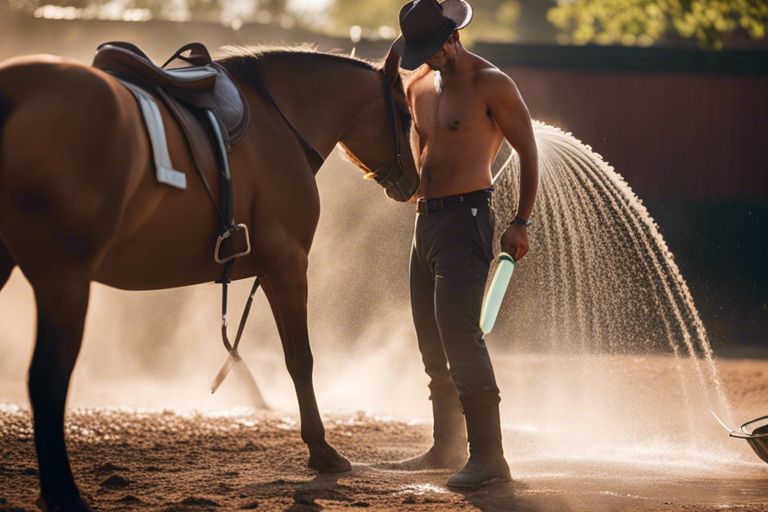
Recognizing Heat Stress in Horses
Signs of Heat Stress
The first step in managing your horse during a heatwave is being able to recognize the signs of heat stress. One of the most common indicators is excessive sweating. If your horse is sweating profusely, especially in cooler temperatures, it could be a sign that they are struggling to regulate their body temperature. Other signs to watch for include rapid breathing, elevated heart rate, lethargy, and dehydration.
Common Causes of Heat Stress
Common causes of heat stress in horses include high temperatures, humidity, inadequate ventilation, strenuous exercise, and lack of access to fresh water. Common factors such as these can quickly lead to your horse experiencing heat stress, which can be dangerous if not addressed promptly.
Stress: It’s necessary to remember that certain breeds, such as heavy horses like drafts, or those with dark coats, are more susceptible to heat stress. Additionally, older horses and those with underlying health conditions may be at higher risk of complications during hot weather.
Providing Adequate Water and Shade
Ensuring Access to Clean Water
Little is more crucial during a heatwave than ensuring your horse has access to an adequate and clean water source. Horses can quickly become dehydrated in extreme heat, leading to serious health issues. Make sure your horse’s water trough is consistently filled with fresh, cool water and regularly cleaned to prevent algae growth or insect infestations that may deter your horse from drinking.
Creating Shade Options for Your Horse
For your horse to stay cool and comfortable during a heatwave, it is vital to provide adequate shade options in their living area. Position shelters or trees strategically to create shaded areas where your horse can seek refuge from the sizzling sun. You can also consider using fly sheets or mesh wraps to provide additional shade and protection from pesky insects while allowing airflow.
Shade not only helps prevent heat-related illnesses like heatstroke but also allows your horse to relax and rest comfortably, promoting their overall well-being during scorching temperatures.
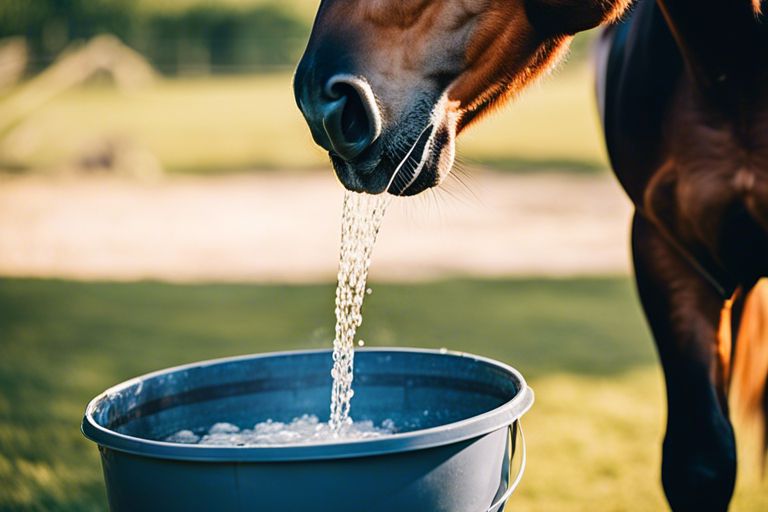
Managing Your Horse’s Diet During a Heatwave
Unlike humans, horses have a limited capacity to sweat and cool themselves down during extreme heat. Managing your horse’s diet properly during a heatwave is crucial to their health and well-being. Here are some tips to ensure your horse stays healthy and comfortable in hot weather.
Reducing Grain Intake
On scorching summer days, it’s necessary to reduce your horse’s grain intake. **Excess grain can elevate your horse’s body temperature as it is harder to digest, putting them at risk of overheating**. **Instead, focus on incorporating more fiber and electrolytes into their diet to support their hydration and overall well-being**.
Increasing Fiber and Electrolyte Intake
Increasing **fiber and electrolyte intake** is crucial in helping your horse stay hydrated and cool during a heatwave. **Fiber helps regulate their digestive system and electrolytes replace the minerals lost through sweating**. **You can achieve this by providing additional hay or switching to a feed with higher fiber content. Additionally, consider offering electrolyte supplements in their water or feed**.
A well-hydrated horse is better equipped to handle the heat. **Make sure that fresh, clean water is always available to your horse, encouraging them to drink frequently throughout the day**.
Avoiding High-Protein Foods
To **prevent overheating and stress on your horse’s kidneys, avoid feeding them high-protein foods during a heatwave**. **Excessive protein can increase metabolic heat production, putting additional strain on your horse’s body**. **Opt for a balanced diet with moderate protein levels to support your horse’s health in hot weather**.
To **support your horse’s overall well-being, focus on providing a diet rich in fiber, moderate in protein, and supplemented with electrolytes to help them stay cool and comfortable**.
Cooling Your Horse Down
All horses are at risk of heat stress during a heatwave, so it’s crucial to keep your equine friend as cool as possible. Here are some effective ways to help cool your horse down:
Using Fans and Misting Systems
Systems that provide fans and misting can be very beneficial in cooling your horse down. Fans help circulate the air and misting systems can help lower the ambient temperature around your horse, providing much-needed relief from the heat.
Providing Cool Water and Electrolyte-Rich Drinks
An important aspect of cooling your horse down is providing cool water and electrolyte-rich drinks. Electrolytes are imperative for replenishing the minerals your horse loses through sweating. Make sure to offer your horse access to fresh, cool water at all times.
With electrolyte-rich drinks, it’s imperative to follow the recommended dosage and not overfeed, as this could lead to further complications. Consult with your veterinarian for advice on the appropriate electrolyte supplement for your horse.
Applying Cooling Measures to the Skin
Measures such as applying cool water or using cooling gels on your horse’s skin can help lower their body temperature. You can also consider using cooling blankets or sheets specifically designed to aid in temperature regulation during hot weather.
Additional Information on Providing Cool Water and Electrolyte-Rich Drinks
To ensure your horse stays properly hydrated, remember to check their water trough frequently and clean it regularly to prevent contamination. Additionally, monitor your horse’s water intake to ensure they are drinking enough to stay hydrated during the heatwave.
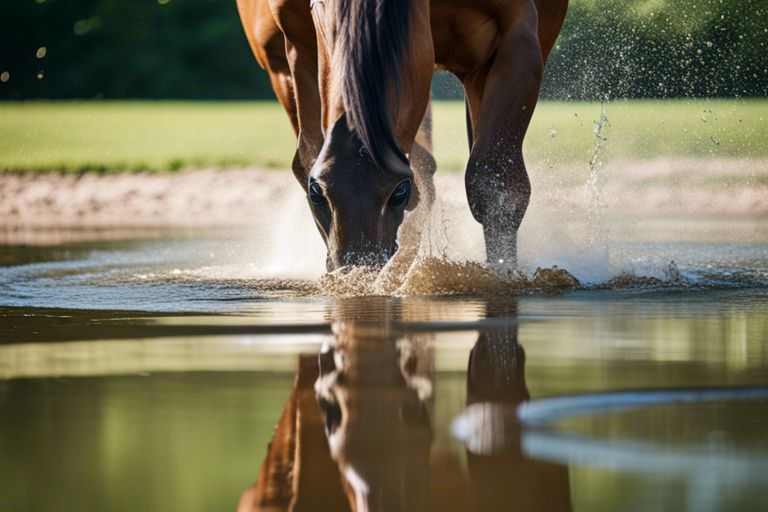
Reducing Exercise and Stress
Despite the need to maintain your horse’s fitness levels, it is crucial to adjust their exercise routine during a heatwave to prevent heat stress and exhaustion.
Limiting Exercise to Cooler Hours
Limiting your horse’s exercise to the early morning or late evening hours when temperatures are cooler can help prevent overheating. These times of the day offer more comfortable conditions for both you and your horse, reducing the risk of heat-related issues. In addition to scheduling exercise during these cooler hours, consider shortening the duration or intensity of the workout to further reduce the risk of overheating.
Avoiding High-Intensity Activities
To avoid putting your horse at risk of heat stress, it is crucial to refrain from engaging in high-intensity activities during a heatwave. High-intensity workouts can quickly elevate your horse’s body temperature, leading to dehydration and heat exhaustion. Instead, opt for lighter activities such as leisurely trail rides or gentle hacks that allow your horse to stay active without overexerting themselves.
High-intensity activities such as jumping, galloping, or intense dressage work should be avoided to prevent your horse from overheating. These activities not only increase the risk of heat stress but also put additional strain on your horse’s cardiovascular system, potentially leading to serious health issues.
Minimizing Handling and Grooming
Reducing the amount of handling and grooming can help keep your horse cool and comfortable during a heatwave. Limit grooming sessions to crucial tasks such as removing dirt, sweat, and debris from your horse’s coat to prevent overheating. Additionally, consider decreasing the frequency of handling and grooming to minimize stress on your horse during hot weather.
With careful consideration of your horse’s exercise routine and handling practices, you can help minimize the risk of heat-related issues and keep your horse healthy and comfortable during a heatwave. Remember to prioritize your horse’s well-being above all else and make adjustments to their care as needed to ensure they stay safe and cool during periods of extreme heat.
Monitoring Your Horse’s Health
Once again, during a heatwave, it is crucial to closely monitor your horse’s health to prevent any heat-related illnesses.
Checking Vital Signs Regularly
To ensure your horse’s well-being, regularly check its vital signs such as temperature, pulse, and respiration rate. Knowing your horse’s normal baseline values will help you identify any abnormalities quickly.
Watching for Signs of Heat Exhaustion
For watching signs of heat exhaustion, keep an eye out for symptoms like excessive sweating, rapid breathing, elevated heart rate, weakness, or stumbling. These are all indications that your horse may be struggling with the heat.
It’s also crucial to monitor your horse’s hydration levels. Dehydration can exacerbate heat-related issues, so make sure your horse has access to fresh, clean water at all times.
Seeking Veterinary Care if Necessary
Necessary to seek veterinary care if you notice any concerning symptoms or if your horse’s condition does not improve. A veterinarian will be able to provide proper treatment and support to help your horse recover.
Another important sign to watch for is heat stroke. This is a medical emergency and requires immediate attention from a veterinarian. Symptoms can include a body temperature above 105°F, seizures, collapse, or unconsciousness.
Final Words
To wrap up, managing your horse during a heatwave is crucial for their health and well-being. By ensuring they have access to shade, fresh water, and electrolytes, you can help them stay cool and hydrated. Additionally, adjusting your riding schedule and being mindful of the signs of heat stress will help prevent any heat-related illnesses. Remember to prioritize your horse’s comfort and safety during hot weather to keep them happy and healthy.
FAQ
Q: How can I keep my horse cool during a heatwave?
A: Keep your horse in a shaded area, provide access to fresh water at all times, and use fans or misters to help regulate their body temperature.
Q: What are the signs of heat stress in horses?
A: Signs of heat stress in horses include excessive sweating, rapid breathing, elevated heart rate, and lethargy.
Q: How often should I offer water to my horse during a heatwave?
A: Offer your horse water frequently, at least every few hours, to ensure they stay hydrated during hot weather.
Q: Should I adjust my horse’s exercise routine during a heatwave?
A: It is advisable to reduce the intensity and duration of your horse’s exercise routine during a heatwave to prevent overheating and dehydration.
Q: What are some additional ways to help my horse stay cool in extreme heat?
A: Other ways to help your horse stay cool during a heatwave include using cooling blankets or sheets, wetting their coat with water, and applying sunscreen to protect against sunburn.
